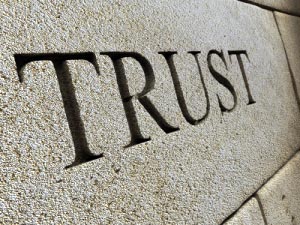Despite the best efforts of authorities, fraudsters are intent on conning savers out of their hard-earned money.
This is when the old adage of ‘if it’s too good to be true, then it probably isn’t’ comes in to play.
Sadly, too many people are lured by the prospect of big profits and little risk to bear that in mind.
To help investors spot a scam, here are some top tips from consumer watchdog and regulator the Financial Conduct Authority.
What is a scam?
Scams come in many shapes and forms but they generally all have a promise that any investment will bring a higher-than-usual return or tax-free benefits unavailable elsewhere.
How do scammers make contact?
Scammers garner information from publically-available shareholder lists, phone books and the internet to make an unsolicited contact or ‘cold call’. They may also make initial contact via email, by letter or at a seminar.
They will be charming and plausible, but often resort to high pressure sales tactics, like extra shares or discount if you buy now rather than wait.
What do scammers sell?
The fraudsters are clever in selling what look like lucrative opportunities in companies that investors have probably never come across. Popular frauds involve carbon credits, foreign plantations, land banking and ‘insider’ information about companies.
Just consider when they call – if an investment is so good, why is the scammer sharing the information and not keeping all the profits?
How do I refuse?
Scammers are plausible and insistent, but you must be firm that when you say no, you mean no.
They will be experienced in overcoming objections but remember a legitimate company will not use pressurise a sale, engage in a long telephone call, or harass you to make a sale.
How can I avoid contact with scammers?
One way to reduce the number of cold calls and unsolicited mailings you receive is to register with the Telephone Preference Service https://www.tpsonline.org.uk/tps/index.html and Mailing Preference Service https://www.mpsonline.org.uk/mpsr/
Fraudsters are still calling me
All financial firms are registered and authorised by the Financial Conduct Authority (FCA) – you can call their helpline to check whether the firm contacting you is registered, and therefore legitimate, on 0800 111 6768.
A genuine firm will happily hand over their firm reference number (FRN) and contact details but do not ring the number they give – contact the number which is on the register to be sure of speaking with the FCA and not a member of the fraudster’s gang.
Do not click any link within an e-mail to a website, not even one which claims it is heading to the fca.org.uk website, as this may be a fake.
Is there a list of unauthorised firms?
The FCA keeps a list of unauthorised firms investors should avoid. Scammers tend to chop and change business names, but the FCA adds the names to the list as soon as someone complains about them.
Many scammers call British investors from abroad to sidestep the Telephone Preference Society rules, but the FCA website has a list of suspect foreign firms as well.
You can find out more here: https://www.fca.org.uk/consumers/protect-yourself/unauthorised-firms/unauthorised-firms-to-avoid.
Foreign firms may be listed here: https://www.fca.org.uk/consumers/protect-yourself/unauthorised-firms/foreign-warnings.
How do I report a scam?
If you think you have been a victim of a scam then contact the FCA by calling 0800 111 6768 or visit the FCA website to report a scam https://www.fca.org.uk/consumers/scams/what-to-do-if-you-are-scammed
